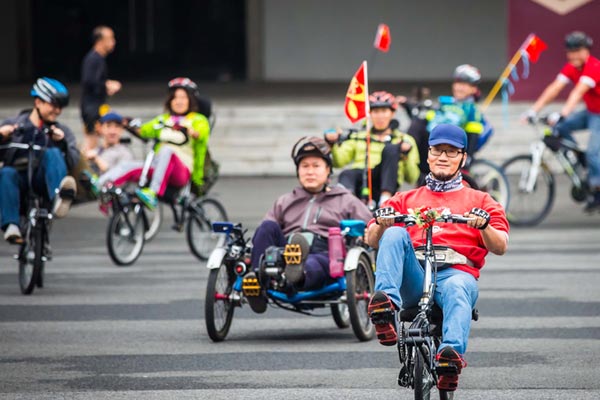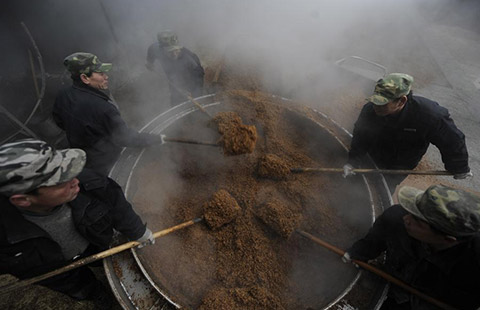China 8% growth likely but challenges ahead
China's top economic advisers said Thursday that China's economic growth can maintain a relatively fast growth rate of around 8 percent in the next two decades, against a backdrop of global economic woes.
But the world's second largest economy will have to face many challenges in order to guarantee sustainable and balanced growth. Yin Hang reports from a CPPCC press conference held in Beijing.
China's central government has set the growth target of 7.5 percent for 2013. And in the course of achieving stable economic development, China will have to face lots of challenges such as industrial upgrading, urbanization, and "how to avoid middle income trap".
Justin Yifu Lin, a former World Bank official and currently professor at Peking University, says he's confident China can achieve eight percent growth, if China's industrial upgrade and economic transformation can be properly handled.
Justin Yifu Lin, former World Bank chief economist, said, "Drawing from lessons of other Asian economies, China, as a developing country, has a sort of "late-mover advantage". Many Asian economies, resorting to this advantage, maintained stable annual growth between 7.6 percent to 9.2 percent. So if China can use it as well, it will likely maintain an annual growth of around 8 percent. "
The past 30 years of China's economic development has also been a process of urbanization. China's urban population has hit 700 million from just 200 million 30 years ago. The 500 million people that moved from rural to urban areas have greatly raised China's average income level and development rate. But as "urbanization" goes deeper, problems occur.
Chen Xiwen, deputy director of the Office of Central Rural Work Leading Group, said, "We should seriously treat three aspects of problems during urbanization. Firstly, the "extensive" growth of city planning, construction and management, which cause massive wastes of resources. These are major hurdles to China's sustainable growth. Secondly, the urbanization of people lags far behind. People who moved from rural to urban areas and have lived in the city still can not obtain the Hukou from that urban area. So they cannot enjoy lots of public services.Thirdly, there are gaps from city to city."
Meanwhile, China also is likely to meet increasing tensions from overseas, such as trade protectionism and loosened monetary policies.
With Japan as an extreme case, the sharp depreciation of the Japanese yen this year has contributed to growing concerns about the outbreak of an undeclared currency war. In response to that, renowned Chinese economist Li Yining says he has some solutions.
Li Yining, professor from Peking University, said, "There are three ways to avoid the side effects. We should speed up our industrial upgrade and self-motivated innovation, so that we can raise the quality of our products. And we should speed up China's structural optimizing process. Meanwhile, China should not relax its imports and investment, as its foreign reserves are enough to shore up its so-called 'step outside' policies."
China has made boosting domestic consumption and nudging up infrastructure investment as major two drivers for its economic development in 2013.

















